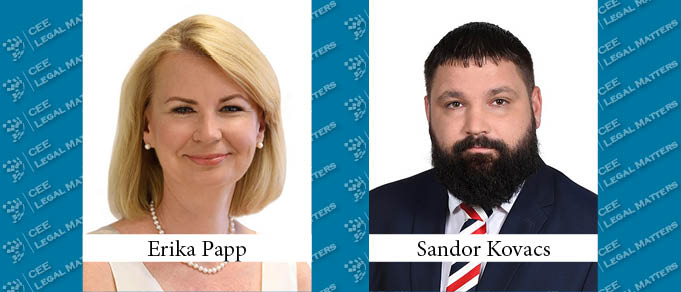Looking at the volume of non-performing loans in the balance sheets of the Hungarian banks, it is possible to believe that the situation has never been better. In fact, however, this is primarily due to the general moratorium introduced by the Hungarian government in March 2020, which protected both companies and consumers against insolvency and non-payment. Now, eight months later, financial institutions are preparing for a potentially massive wave of bankruptcies, as they already reserved HUF 250 billion in the first half of this year.
Recently, however, the government has introduced new measures and announced that the moratorium will be extended by an additional six months in certain specific cases. In particular, vulnerable consumers such as the unemployed and pensioners will automatically continue to benefit from the moratorium, and companies with income that has decreased by more than 25% can continue to access the moratorium at their request. Confusingly, however, the new measures contain language “banning the early termination of loans” for half a year – which is unfortunately not explained. It is unlikely to mean an absolute prohibition, as not sanctioning fraudulent acts or omissions by debtors would create an unacceptable risk. On the other hand, if this simply means that banks cannot terminate a loan for non-payment, it is not clear how this will differ from the moratorium.
If these uncertainties were not enough, the July 2021 deadline for transposing the directive on preventive restructuring frameworks is quickly approaching. Theoretically, it should be possible to amend the rules of the existing bankruptcy procedure by including the rules of the directive. However, given that the government has for a while been working on a completely new Bankruptcy Code, with a published concept paper that did not address the provisions of the directive in detail, it seems more likely that the Hungarian legislator will introduce a new procedure to comply with its implementing obligations. It should be emphasized that the directive only sets forth the main framework, with many possible exceptions, and the Hungarian legislator has plenty of room to manoeuvre on the details, so any analysis can only be made on a high level at this stage.
While the main idea is identical (imposing a moratorium on payment obligations to facilitate re-negotiating debt between creditors and debtors), the new procedure will differ from the existing bankruptcy procedure in many ways. The current market practice is that, in the event of bankruptcy, banks immediately suspend the availability of any undrawn facility and are likely to accelerate/terminate drawn ones. However, the directive requires a different approach, foreseeing that suppliers and service providers will continue to provide services essential to the debtor’s operation. Therefore, banks may easily find themselves needing to continue financing an insolvent debtor (or at least a debtor being close to it). In this regard, it may be even more important to include early warning-type covenants and representations in the facility agreement than before.
Although a moratorium can be ordered without the lenders’ approval, it should terminate (including before its original term) if it becomes apparent that a certain proportion of creditors do not support the restructuring. The relatively low number of successful bankruptcy proceedings already shows that in many cases banks will object and will choose to enforce collaterals as early as possible.
On a separate note, while the directive leaves the possibility to include third-party security providers (typically parent companies) under the moratorium open, based on foreign examples we predict that the moratorium will only apply to the debtor itself. If this is the case, the careful selection of collaterals may incentivize the debtor to continue paying the debt: e.g., if the parent needs to pay anyway under a corporate guarantee, it may be beneficial for all parties to comply with the original payment obligations.
To conclude, once the details of the extended moratorium and the new restructuring procedures are clarified, the banks will need to revisit existing matters and elaborate best practices for new transactions, taking new rules into consideration.
By Erika Papp, Managing Partner, and Sandor Kovacs, Senior Associate, CMS
This Article was originally published in Issue 7.11 of the CEE Legal Matters Magazine. If you would like to receive a hard copy of the magazine, you can subscribe here.



